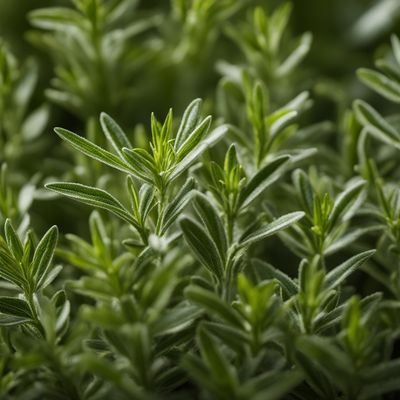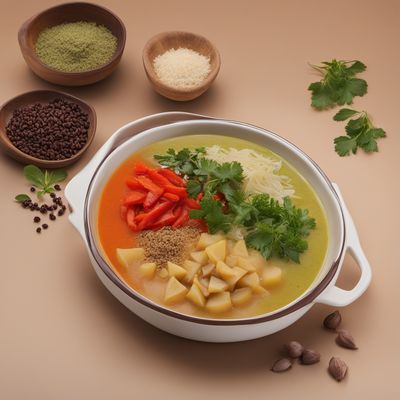
Ingredient
Lovage, dry
The Aromatic Herb: Lovage
Lovage, also known as 'love parsley,' is a perennial herb with dark green leaves and a strong, celery-like taste. It has a robust aroma and a slightly bitter, earthy flavor. The dried form of lovage is commonly used as a seasoning in soups, stews, and sauces, providing a savory and aromatic element to the dish.
Origins and history
Lovage has been cultivated since ancient times and is native to the Mediterranean region. It was highly valued by the Romans and Greeks for its medicinal properties and was used as a culinary herb. Lovage has a rich history in European cuisine and is still popular in traditional dishes today.
Nutritional information
Lovage is low in calories and a good source of vitamins A and C. It also contains minerals like potassium and calcium, as well as beneficial compounds like flavonoids and volatile oils.
Allergens
There are no known allergens associated with lovage.
How to select
When selecting dried lovage, look for a reputable brand that offers high-quality, organic products. Check the packaging for any signs of moisture or clumping, as this may indicate poor quality. Opt for whole leaves or flakes rather than powdered lovage for better flavor retention.
Storage recommendations
To maintain the freshness and quality of dried lovage, store it in an airtight container in a cool, dark place. Avoid exposure to heat, moisture, or direct sunlight, as these can degrade the flavor and aroma of the herb.
How to produce
Lovage can be easily grown in a home garden or container. It thrives in well-drained soil and requires full sun or partial shade. Sow the seeds in early spring or late summer and keep the soil consistently moist. Harvest the leaves as needed, and dry them for later use by hanging them upside down in a cool, dry place.
Preparation tips
Lovage can be used in various dishes, such as soups, stews, stocks, and sauces, to add a savory and aromatic element. It pairs well with potatoes, carrots, and other root vegetables. It can also be infused into oils or vinegars for a unique flavor twist.
Culinary uses
Lovage is commonly used in European cuisines, particularly in countries like Germany, Hungary, and Poland. It is also found in Mediterranean and Middle Eastern cuisines.
Availability
Throughout the year, dried lovage is widely available in grocery stores, specialty food stores, and online retailers.
More ingredients from this category » Browse all

Wintergreen leaves, dry
Nature's Minty Delight

Thyme, dry
The Essence of Thyme: A Versatile Herb

Savory, dry
Umami Delight

Marjoram, dry
Discovering the Aromatic Delights of Dry Marjoram

Woodruff, dry
The Fragrant Herb: Unveiling the Secrets of Dry Woodruff

Sage, dry
The Timeless Herb: Unveiling the Versatility of Dry Sage

Borage, dry
The Vibrant Herb of Delight

Lavender, dry
The Fragrant Herb: Lavender

Fennel, dry
The Fragrant Spice of the Mediterranean

Angelica, dry
The Heavenly Herb: Unveiling the Secrets of Dry Angelica

Celery leaves, dry
The Flavorful Herb: Dry Celery Leaves

Mints, dry
The Versatile Herb: Unlocking the Aromatic Power of Dry Mints
